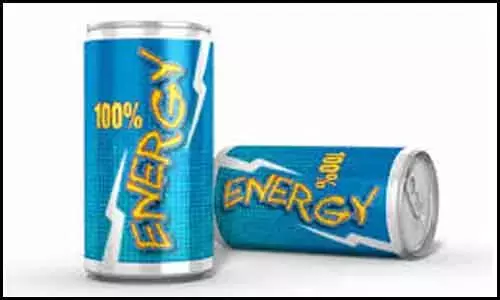- Home
- Medical news & Guidelines
- Anesthesiology
- Cardiology and CTVS
- Critical Care
- Dentistry
- Dermatology
- Diabetes and Endocrinology
- ENT
- Gastroenterology
- Medicine
- Nephrology
- Neurology
- Obstretics-Gynaecology
- Oncology
- Ophthalmology
- Orthopaedics
- Pediatrics-Neonatology
- Psychiatry
- Pulmonology
- Radiology
- Surgery
- Urology
- Laboratory Medicine
- Diet
- Nursing
- Paramedical
- Physiotherapy
- Health news
- Fact Check
- Bone Health Fact Check
- Brain Health Fact Check
- Cancer Related Fact Check
- Child Care Fact Check
- Dental and oral health fact check
- Diabetes and metabolic health fact check
- Diet and Nutrition Fact Check
- Eye and ENT Care Fact Check
- Fitness fact check
- Gut health fact check
- Heart health fact check
- Kidney health fact check
- Medical education fact check
- Men's health fact check
- Respiratory fact check
- Skin and hair care fact check
- Vaccine and Immunization fact check
- Women's health fact check
- AYUSH
- State News
- Andaman and Nicobar Islands
- Andhra Pradesh
- Arunachal Pradesh
- Assam
- Bihar
- Chandigarh
- Chattisgarh
- Dadra and Nagar Haveli
- Daman and Diu
- Delhi
- Goa
- Gujarat
- Haryana
- Himachal Pradesh
- Jammu & Kashmir
- Jharkhand
- Karnataka
- Kerala
- Ladakh
- Lakshadweep
- Madhya Pradesh
- Maharashtra
- Manipur
- Meghalaya
- Mizoram
- Nagaland
- Odisha
- Puducherry
- Punjab
- Rajasthan
- Sikkim
- Tamil Nadu
- Telangana
- Tripura
- Uttar Pradesh
- Uttrakhand
- West Bengal
- Medical Education
- Industry
Energy Drink consumption led to Acute kidney injury and hepatitis: a case report

Dr Raed Al Yacoub at Division of Hospital Medicine, Department of Internal Medicine, University of Florida, Gainesville, FL, USA and colleagues have reported a case of acute kidney injury and hepatitis associated with energy drink consumption. The case has been published in the Journal of Medical Case Reports.
A 62-year-old white woman who had been enrolled in hospice care for 4 months since discontinuing treatment for small cell carcinoma of the left lung presented to the hospice in-patient unit with several days' history of progressive confusion, fatigue, poor sleep, decreased intake, nausea, and vomiting. On initial assessment, her condition was thought to most likely stem from the progression of her cancer. She was treated symptomatically for nausea and delirium, but continued to decline, developing diaphoresis, decreased level of consciousness, increased weakness, and lethargy. Further history revealed that over several weeks prior to admission her appetite had declined with minimal intake except for five to six cans of a 16 fluid ounce sugar-free ED daily.
On day 3, laboratory tests revealed significant hepatic and renal dysfunction. Baseline kidney and liver tests had been within normal range 2 months previously, except for mildly elevated alkaline phosphatase (ALP) (Table 1). A chest X-ray showed no acute cardiopulmonary disease. She received hydration with normal saline, empiric treatment of infection with ceftriaxone because of elevated white blood cell (WBC) count, and her home medications were adjusted for liver and kidney functions. Repeat laboratory tests on day 6 showed slightly improved liver but worsening renal function (Table 1). A urine culture was negative, and WBC normalized. Ultrasound revealed normal liver echogenicity, normal gallbladder with wall thickness 2 mm, mild extrahepatic and intrahepatic duct dilatation (seen on previous imaging), and normal kidneys.
The family confirmed our patient's wishes to avoid transfer to the hospital or aggressive interventions such as dialysis or further intravenously administered antibiotics and was accepting of the possibility of a limited prognosis. Supportive care was provided with hydration, parenteral medications, and symptom management. On days 8–9, she became more alert and began to take food, fluids, and medications reliably by mouth. Repeat laboratory tests on day 10 showed significant improvement consistent with her clinical condition with normal renal function and greatly improved liver enzymes. She returned to her baseline mental and functional status and was discharged home on day 14 with instructions to avoid further consumption of any ED products.
For more details click on the link: https://doi.org/10.1186/s13256-019-2340-0
Hina Zahid Joined Medical Dialogue in 2017 with a passion to work as a Reporter. She coordinates with various national and international journals and association and covers all the stories related to Medical guidelines, Medical Journals, rare medical surgeries as well as all the updates in the medical field. Email: editorial@medicaldialogues.in. Contact no. 011-43720751
Dr Kamal Kant Kohli-MBBS, DTCD- a chest specialist with more than 30 years of practice and a flair for writing clinical articles, Dr Kamal Kant Kohli joined Medical Dialogues as a Chief Editor of Medical News. Besides writing articles, as an editor, he proofreads and verifies all the medical content published on Medical Dialogues including those coming from journals, studies,medical conferences,guidelines etc. Email: drkohli@medicaldialogues.in. Contact no. 011-43720751


